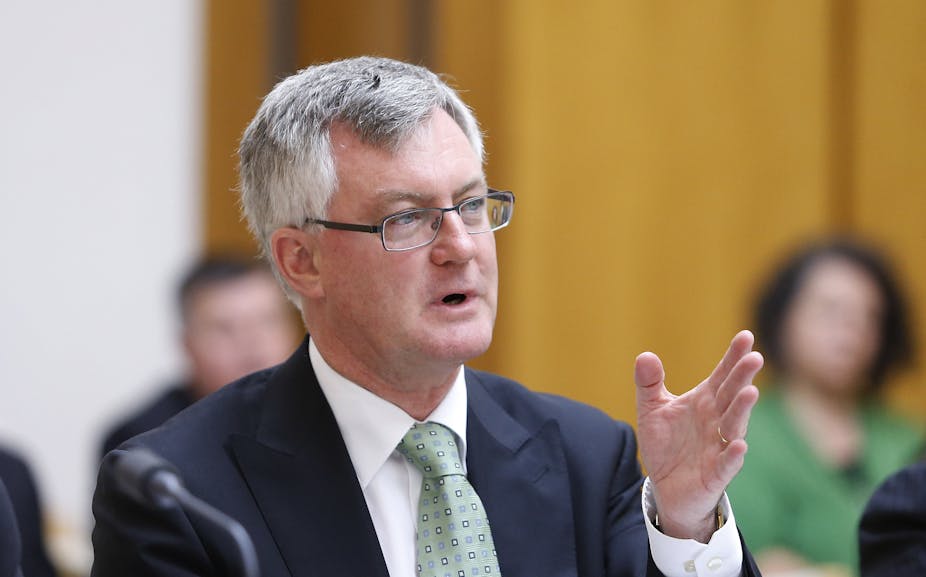Treasury secretary Martin Parkinson has said that plans for tax reform must highlight medium-term economic payoffs, avoiding the “zero-sum” focus of recent debates, if they are to be successfully sold to the community.
In a fresh call for a big shake-up of the tax mix, Parkinson said that it was hard to overstate the need for reforming the tax system.
“If our public finances are not put on a more sustainable footing, tax reform becomes more difficult as time passes,” he told a mining conference in Perth.
The tax mix was heavily weighted towards direct tax on income – personal and corporate. If the rates and bases were left as now, “our reliance on income tax would grow over time”.

“We will move even further in this direction if, as we anticipate, the relative share of total indirect taxes continues its long-term decline, including the GST.” Part of this effect could be seen in the increase in the share of revenue raised from personal income tax, a result of fiscal drag.
Fiscal drag would pull a person on average full-time earnings into the 37 cent bracket from 2015-16, and increase the average tax rate faced by a taxpayer earning the projected average from 23% to 28% by 2024-25.
If fiscal drag wasn’t periodically returned in tax cuts, it could reduce incentives for workforce participation by low-income earners and increase incentives for tax minimisation at higher incomes, Parkinson said.

There were similar implications for corporate income tax, where the international trend had been for countries to lower corporate rates and broaden bases.
“One of the key issues of the reform debate will be the competitiveness of our corporate tax system and our capacity to attract mobile global investment.”
The increased digitisation of the economy, the rise in corporations operating across multiple borders, increased capital mobility and the growing importance of intangibles were all positive economic developments but with implications for the tax system.
Without conscious change, the economic cost of raising tax from our current tax mix would increase.
Reform would not be simple, Parkinson said, particularly in the context of the federation. Considerations of an optimal mix were relevant to all levels of government. Any changes were likely to have implications for the imbalances between state and territory government spending and taxing, as well as for transfers between the states, or to the states from the Commonwealth.
For the community to embrace changes, “the case for reform has to be compelling and well understood”, he said.
“Reform proposals should highlight medium-term, economic payoffs – the positive impacts they will have on individual effort, investment and growth. This dynamic, forward-looking focus will help guard against the ‘zero-sum’ or rob-Peter-to-pay-Paul focus of recent tax policy debates.”
Parkinson repeated a point he made strongly earlier this week about the equity debate – that “it is one thing to argue that reform proposals should be designed with fairness in mind … It is quite another to invoke vague notions of fairness to oppose all reform.”
If there could be no losers from any individual element of a reform proposal, even if the whole package advanced the nation’s interest, this made a sensible debate virtually impossible.
It also had to be remembered that detail mattered. Proposals that worked in a textbook but failed to recognise commercial realities would eventually be found out.
“This highlights the importance of conducting open and transparent consultation as early as possible in the policy development process.
"Taxpayers - whether they are ordinary wage earners, small businesses or large conglomerates – know far more about how the tax system affects them than anyone else. Reform advocates, both in and outside government, should be humble enough to acknowledge that.”

